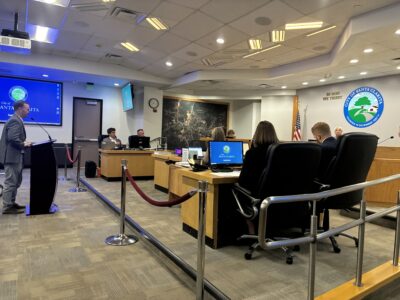For decades, Americans have heard a steady refrain: “Government has no business picking winners and losers.”
The idea was simple: guard against central planning and protect the independence of markets.
Washington’s role was supposed to be limited: enforce contracts, protect property rights, provide infrastructure. The rest was left to competition, innovation and consumer choice.
Yet today we are drifting away from that principle. Recent policies have pushed the United States closer to a system where government not only regulates markets, but also directly shapes their outcomes.
Government is owning stakes, blocking projects midstream, and using tariffs as levers of reward or punishment. We are sliding toward government control of the means of production.
Consider recent news:
The federal government just acquired 10% of Intel, one of America’s largest technology companies. That makes Washington not only a regulator of the chip industry but also a shareholder with a direct financial interest in its fortunes, and in the outcomes for its rivals.
In the steel sector, the government demanded a “golden share” with veto power over corporate decisions as a condition of allowing a foreign acquisition of a U.S. steel firm.
These are not traditional regulatory roles. They are direct forms of ownership and control.
Tariffs, once debated as blunt tools to protect domestic industries, are now applied broadly and then selectively lifted.
Companies aligned with government policy may find relief. Those that do not must absorb the costs.
This kind of discretionary tariff system risks becoming less about national trade strategy and more about political favoritism.
Energy policy has seen one of the heaviest hands of “loser picking.” Billions in clean-energy commitments have been scrapped, effectively surrendering a growth market to China in favor of Big Oil.
Then came the most shocking move: Revolution Wind, a massive offshore project off New England’s coast, was halted despite being 80% built, fully permitted, and internationally backed.
The official explanation cited “national security” without evidence.
The result: uncertainty for 15 million grid users, 1,000 threatened jobs, and billions in wasted investment.
If permitted, financed and nearly operational projects can be undone by political decree, investor confidence across the economy collapses.
Even the Federal Reserve, long an independent guardian of monetary stability, has faced mounting political pressure.
While past administrations occasionally grumbled about Fed policy, today we are witnessing peak politicization.
If the Fed becomes subject to election-year politics, the ripple effects will hit every mortgage, every savings account, and every retirement plan in America.
That is the path to banana-republic economics.
And these policies do not stop with economics. Independent institutions are under pressure over curriculum, hiring practices and social policies.
Companies like Target have faced direct federal harassment over cultural decisions.
Prominent law firms were threatened with the loss of contracts unless they agreed to massive “settlements.” These amounted to strong-armed concessions running into hundreds of millions of dollars of pro bono work. Prestigious universities bow down to avoid near-billion dollar “penalties.”
This is less about oversight than about coercion.
Once government takes on the role of market arbiter, it rarely stops. Entire sectors soon operate not by competition, but at the whim of political leaders.
At risk in So-Cal? Our prestigious higher education system. Our world-class ports and logistics industries. Our emerging clean energy businesses. And more.
There is no shortage of examples of slippage from free markets to state-controlled or crony capitalism. Russia, Turkey, Hungary, and as a worst-case example Venezuela, have all decayed to where markets exist in name, but outcomes are bent and corrupted by political power.
Friends of the state prosper. Critics are sidelined. Citizens pay the price in higher costs, fewer choices and diminished innovation.
So, do we still want a system where the market decides outcomes?
Or are we prepared to live under a model where government sits in the boardroom, holds stock, cancels contracts it dislikes, pressures independent institutions, and bends the economy to the will of one leader?
Think Russia. Think Vladimir Putin’s results. And then decide which way is right or wrong for America.
Gary Horton’s “Full Speed to Port!” has appeared in The Signal since 2006. The opinions expressed in his column do not necessarily reflect the opinions of The Signal or its editorial board.










